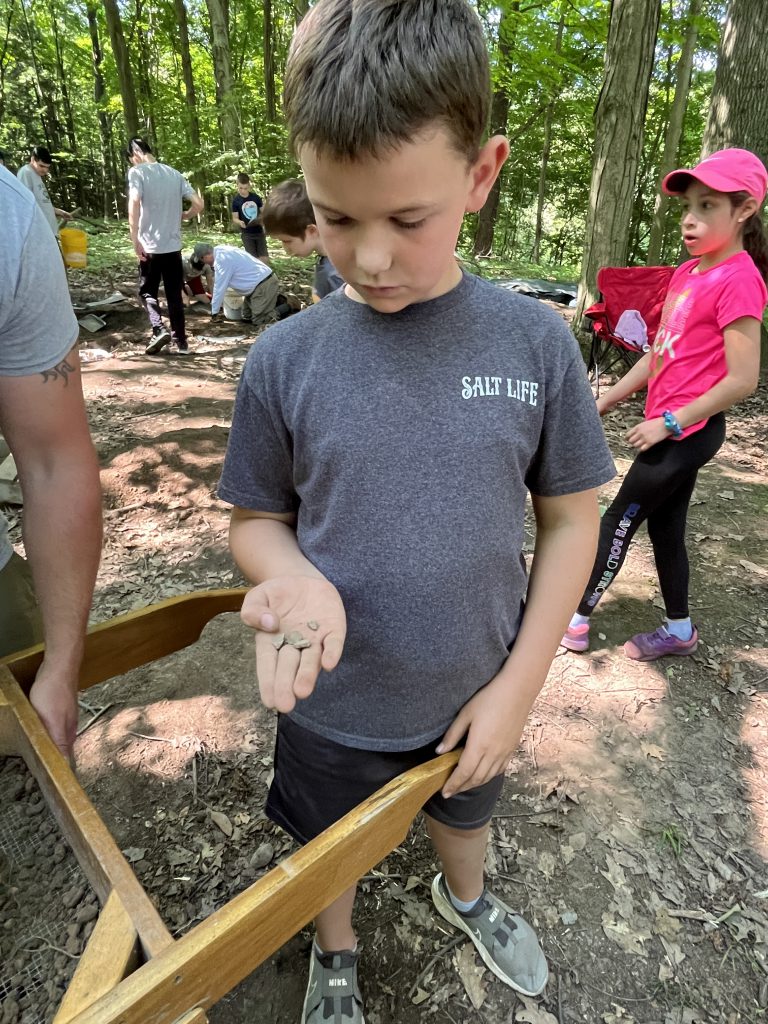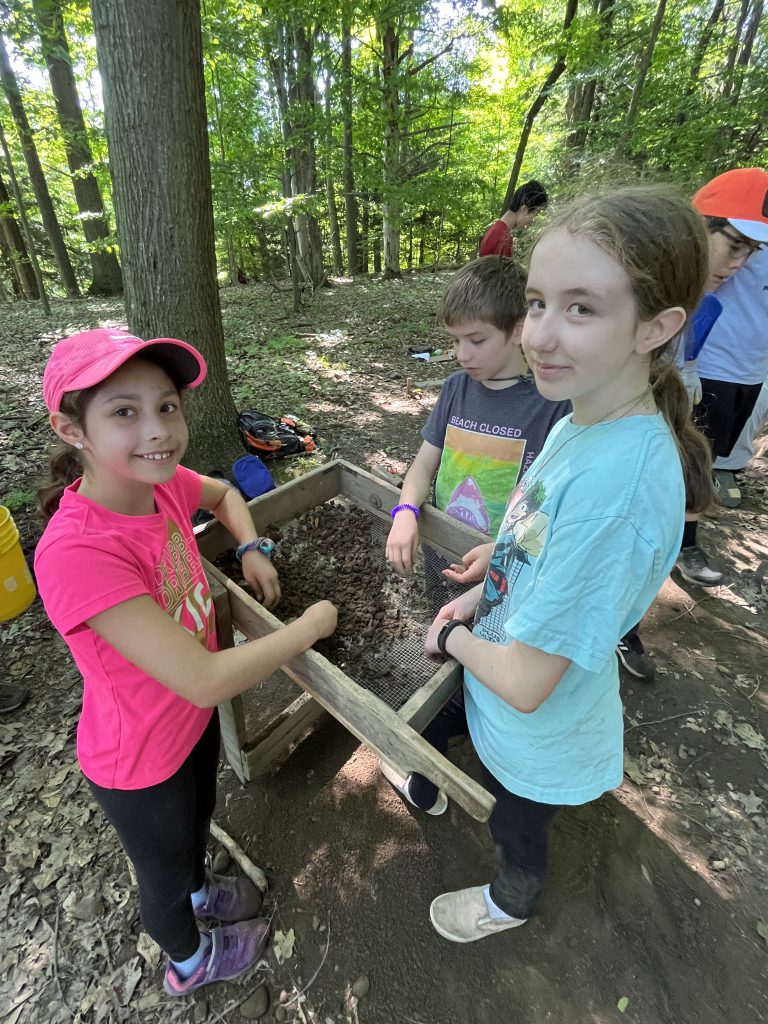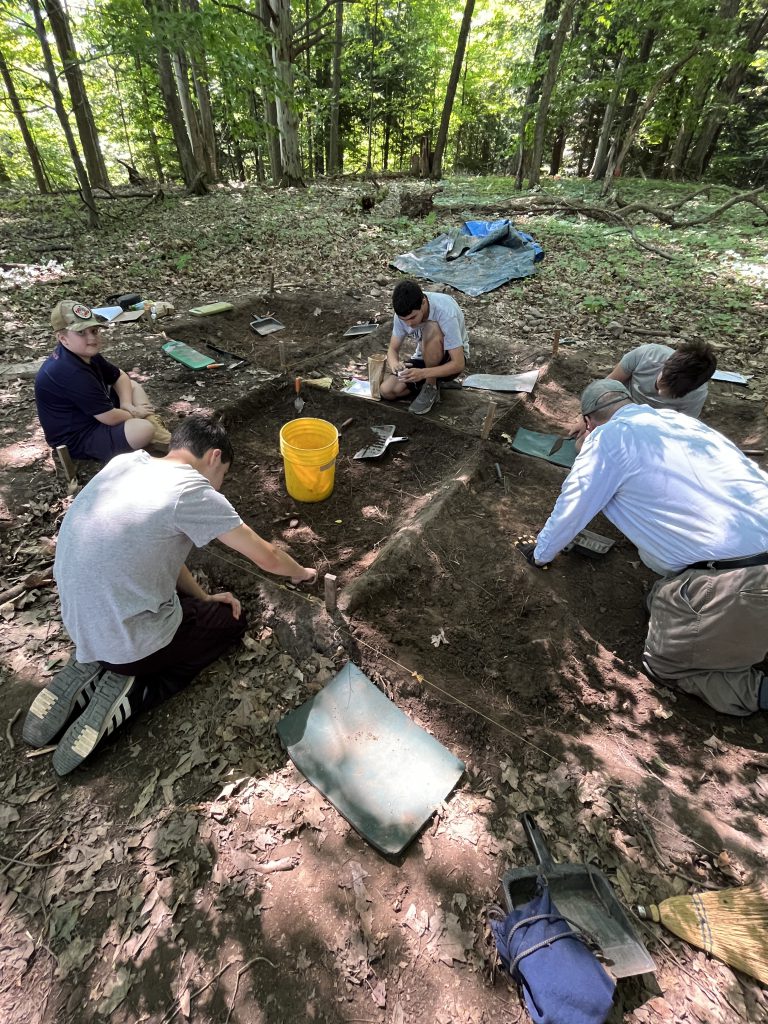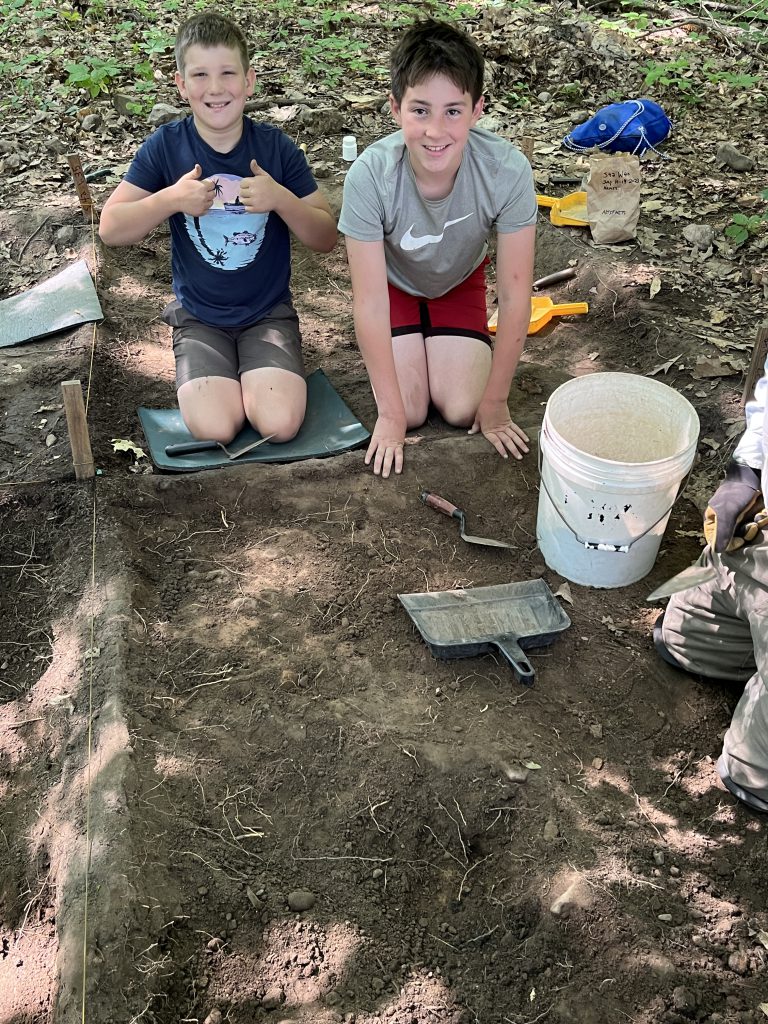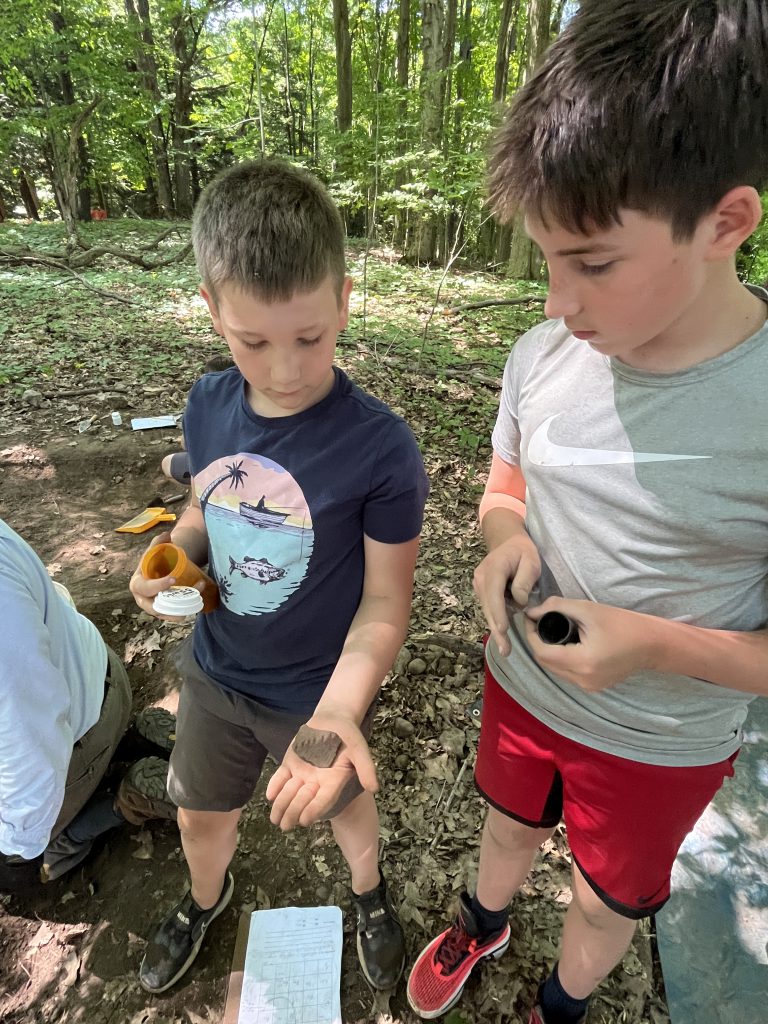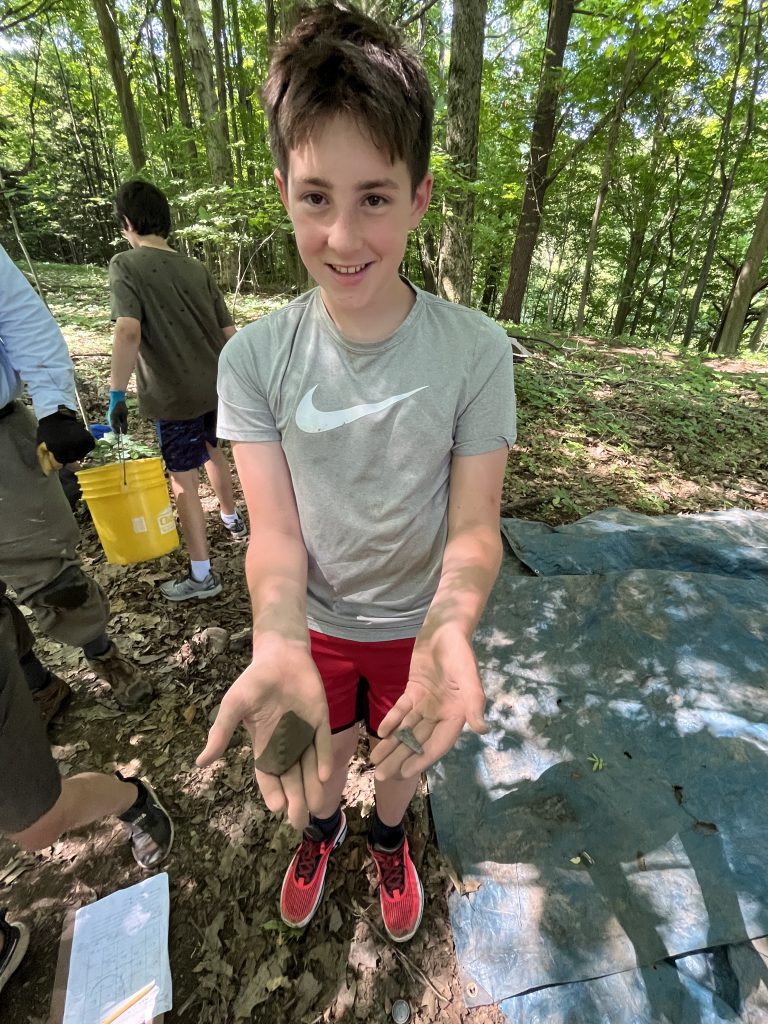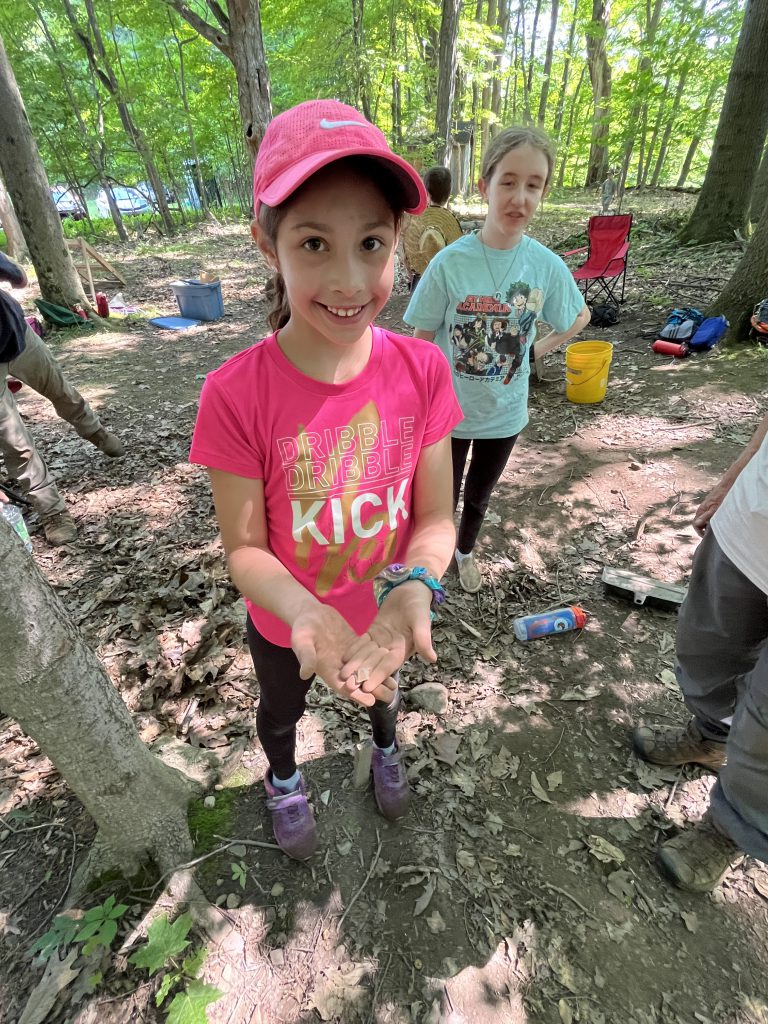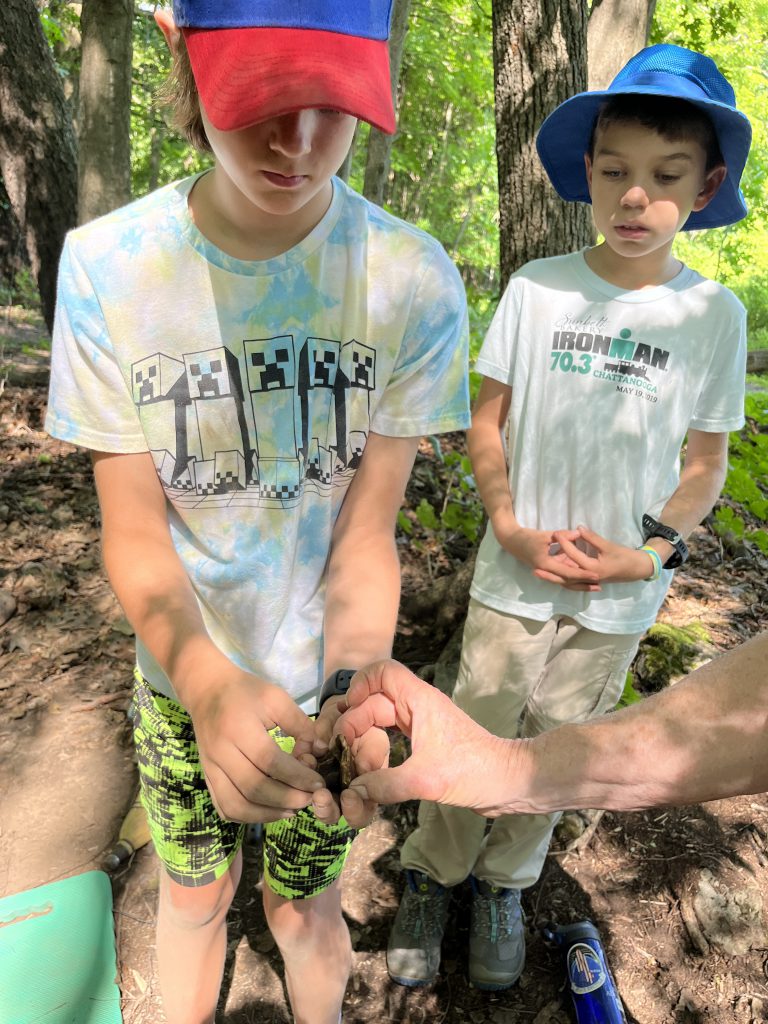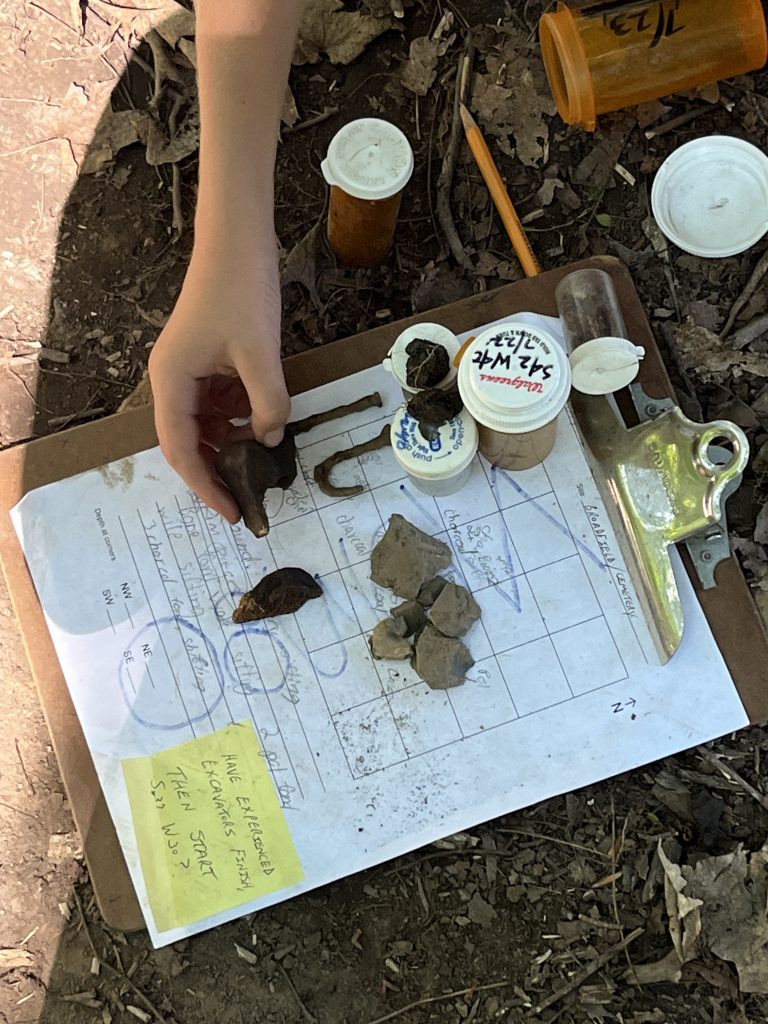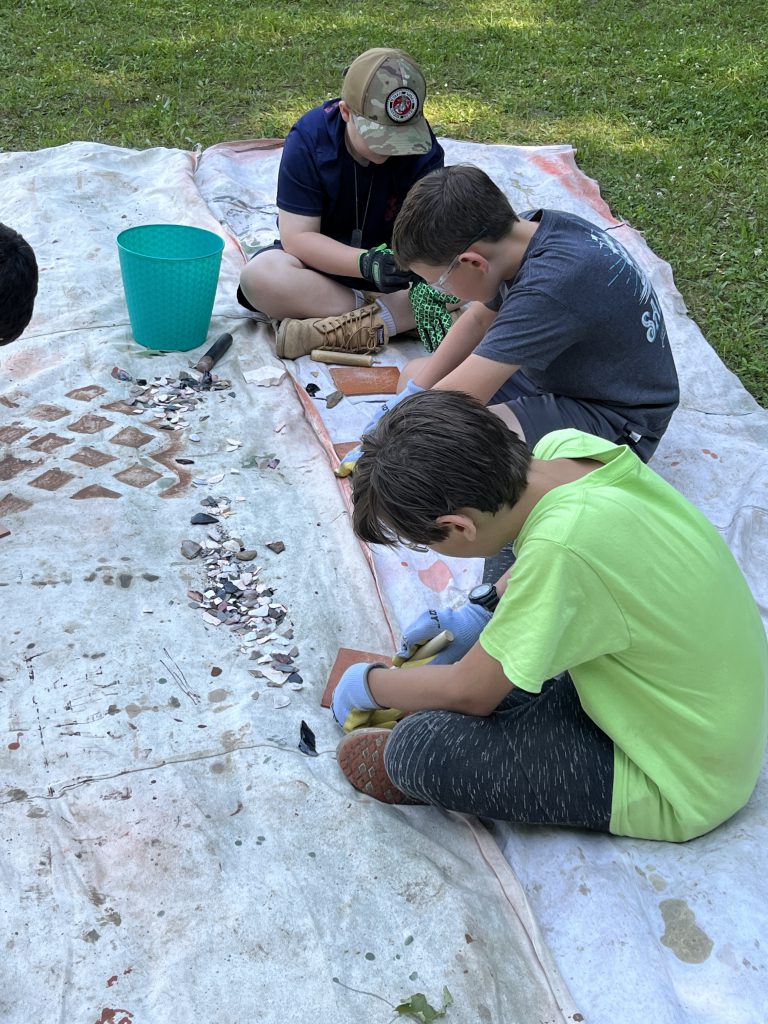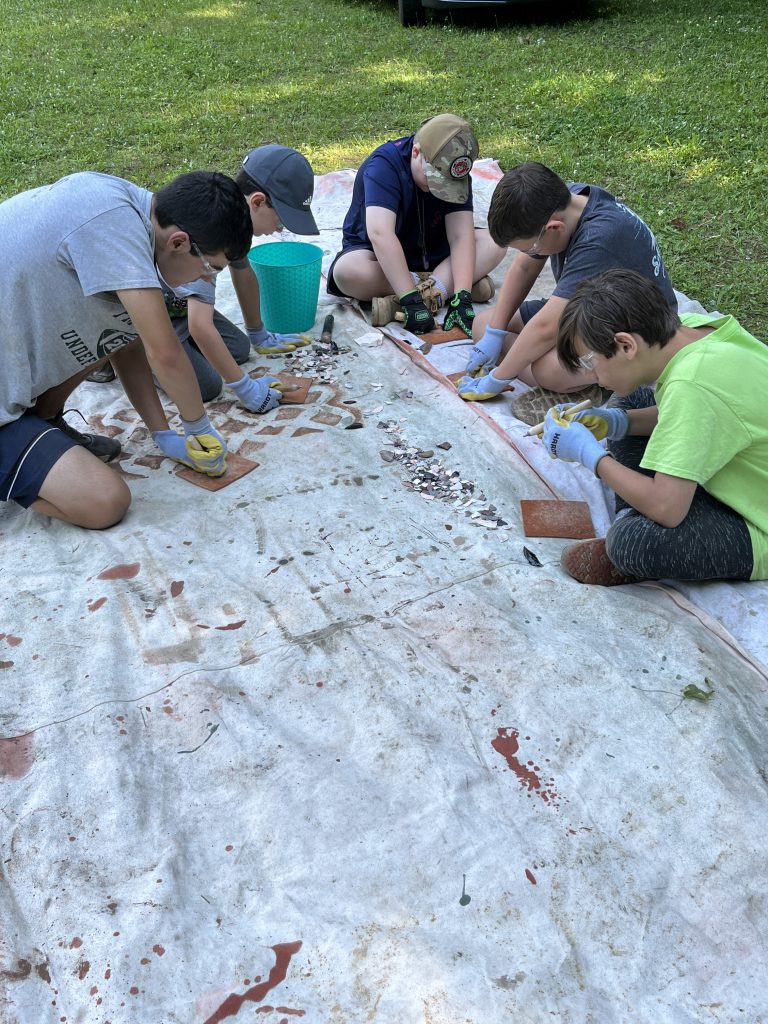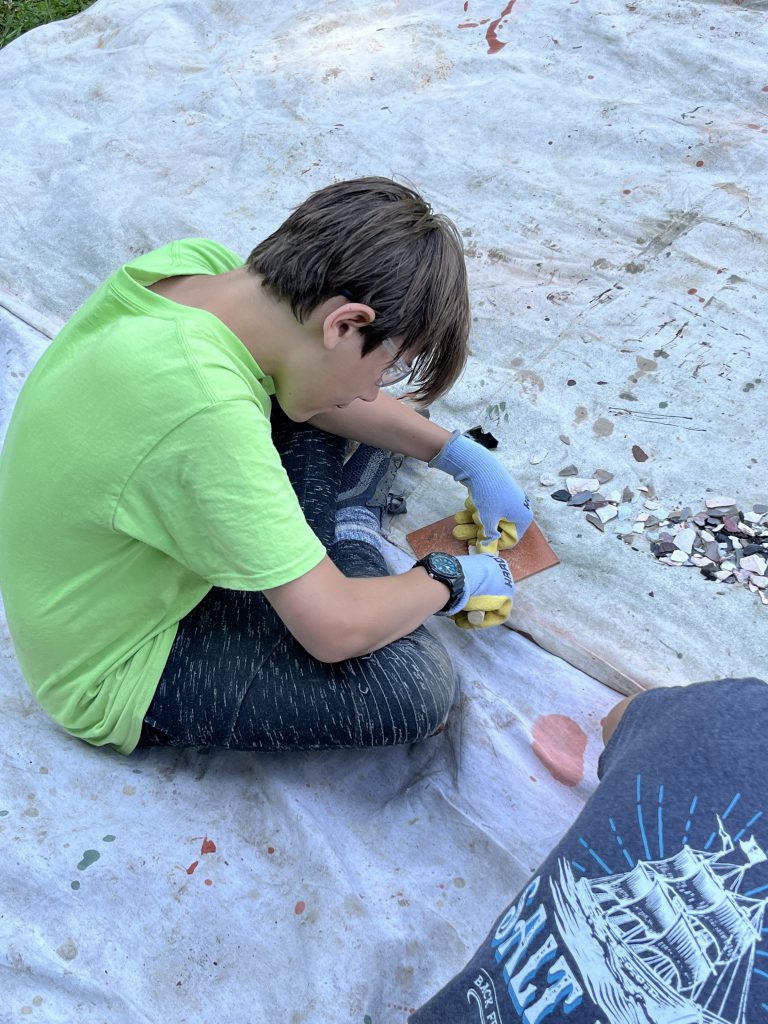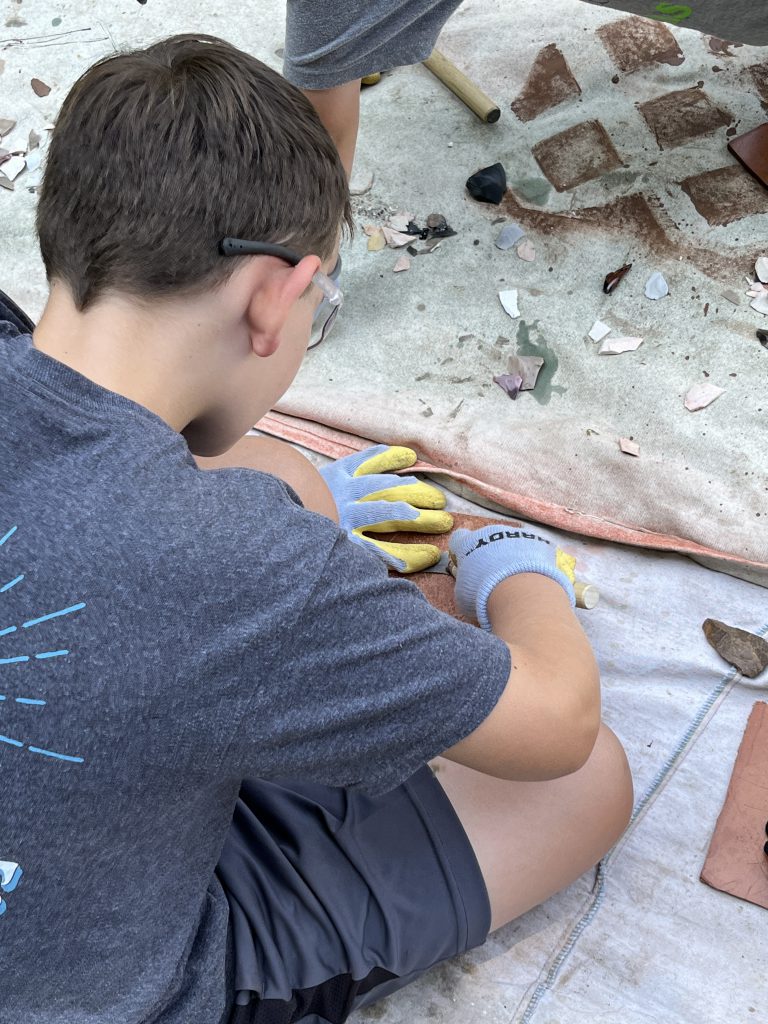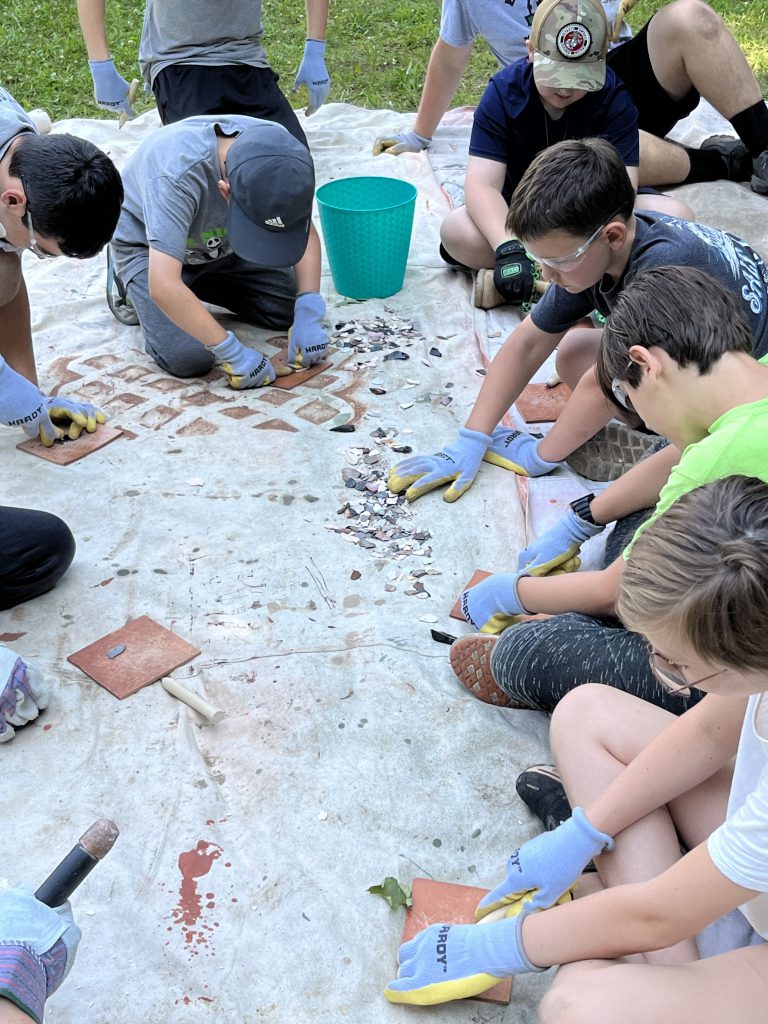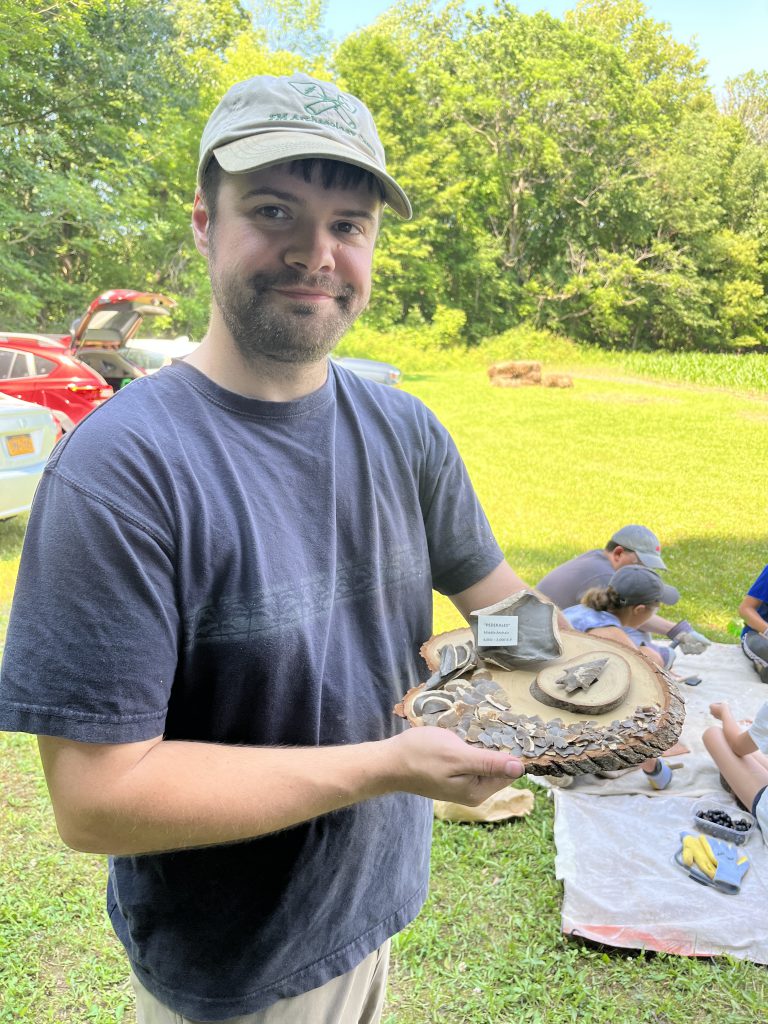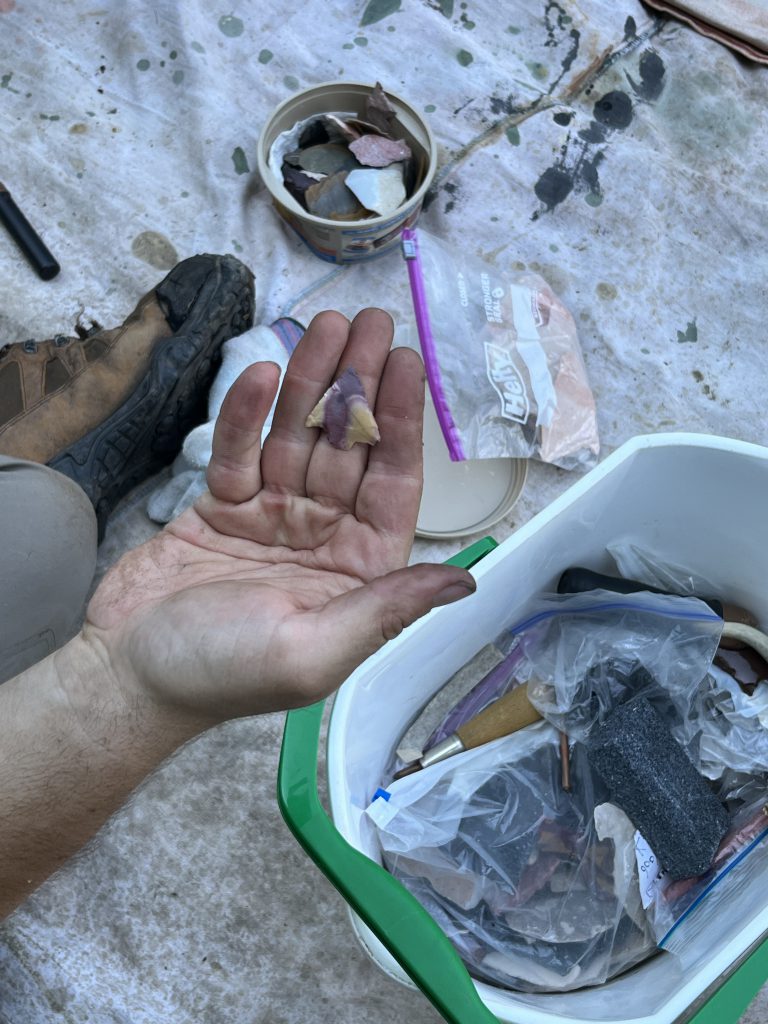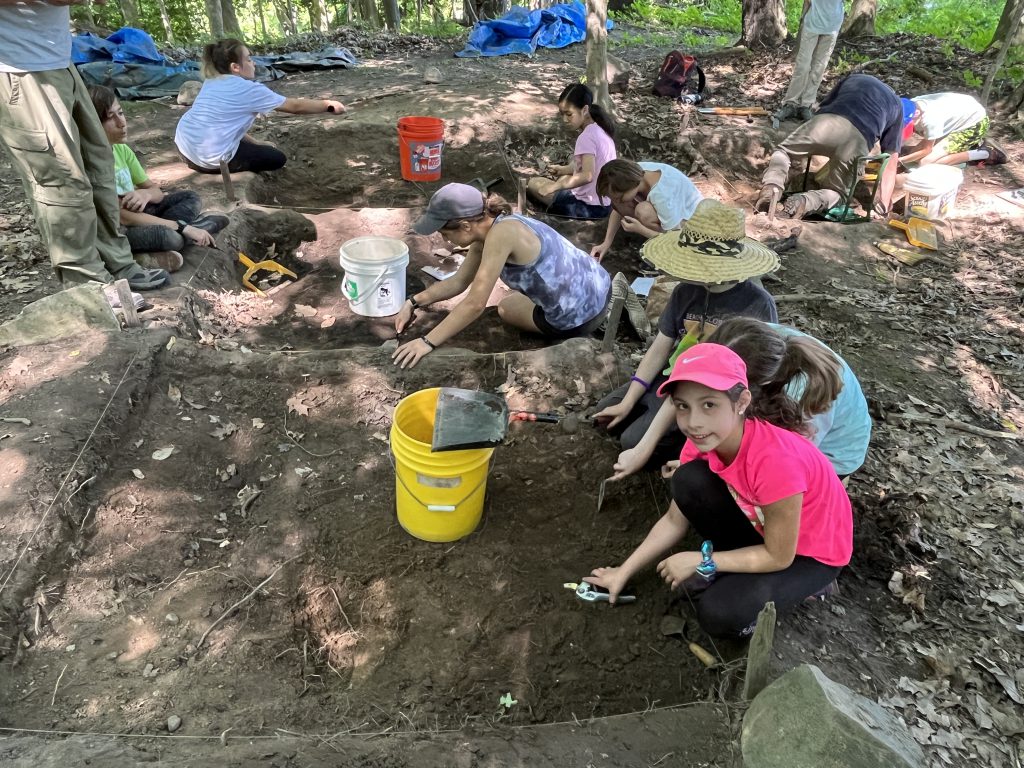A couple of miles away from the center of the village of Manlius, in a peaceful clearing behind a cornfield, students from F-M and beyond work to uncover the past.
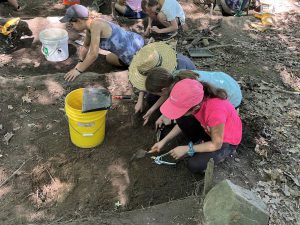
“We’re thinking they sat here; a warrior went off with his bow and arrow and caught a deer, and they had quite a feast,” explained retired F-M teacher Diana Green, while surveying a fire pit uncovered by students during their summer archaeological dig.
Each year for one week during the summer, middle school students participate in Archaeology Camp, run through the Town of Manlius, supported by the Fayetteville-Manlius School District. Students from area-schools dig for artifacts on an Onondaga Nation site, located on property now owned by the F-M School District.
“We’ve had students who have gone on to become archaeologists because of participating in this program,” said Green.
The site where digging takes place goes back nearly 500 years. It was a defensive peninsula with escarpments on both sides, and Green explained the Onondaga Nation likely had a palisade, or a fence of wooden stakes, on one side of the property to protect them from attacks. When archeology camp first got started in 1997, they were looking for that palisade.
Each year, the camp returns to the same plot of land, and never runs out of artifacts to find. This summer, students found chunks of pottery, charcoal, arrowheads, an intact firepit, and what they believe to be a knee bone of a deer.
When students aren’t digging, they’re learning about activities such as Knapping: the shaping of flint, chert, or other stone to manufacture tools, such as arrowheads.
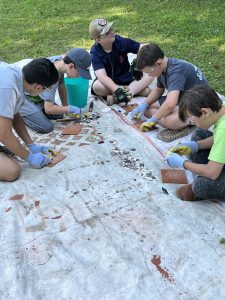
“Knapping helps bring students full circle when finding artifacts, because we can say, ‘remember how much waste you had to make the point, and how difficult it was? Remember that process, and now you know why we aren’t finding more arrowheads’,” explained Ethan Bennett, a 2002 F-M graduate who volunteers during archaeology camp week. “They also get an appreciation of how hard it was to create something with your hands.”
F-M is the only school district in the state with an archaeological site available to its students. During the school year, high schoolers who take the Anthropology elective class clean and categorize what is found over the summer. They also visit the site, usually in May.
All artifacts that are found are kept at F-M High School but owned by the Onondaga Nation. At any point, members of the Onondaga Nation can request to see the artifacts found and take anything they’d like to keep.

